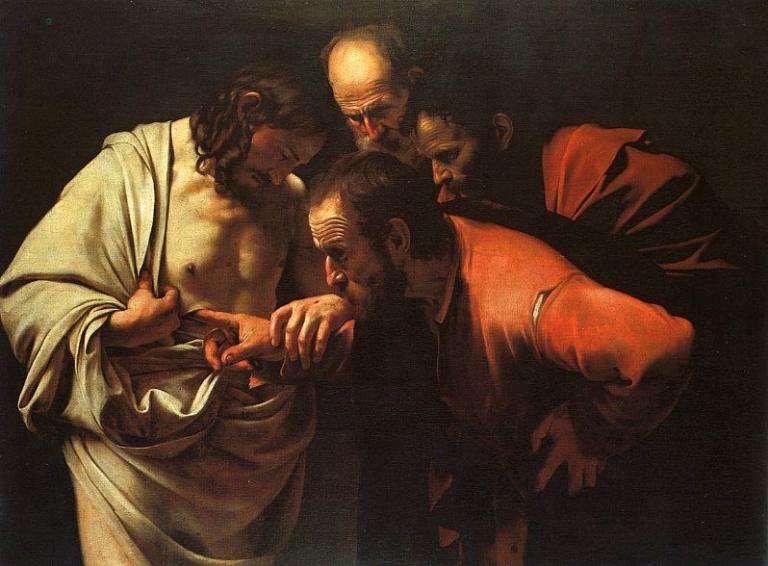I’ve always loved the story of Jesus appearing to Thomas.
Maybe it’s because of the skeptic in me. Growing up in the megachurch movement, I watched thousands of people around me every Sunday, swallowing a self-help gospel hook, line, and sinker. It wasn’t the Joel Osteen style, “you were born to win” sort of self-help gospel. I think that’s what it was so easy to digest to the usual churchy, Christian crowd.
(By the way, despite what the megachurch movement would like you to believe, they are jam packed with the usual church, Christian crowd, not by scores and hoards of newly attracted disciples.)
This kind of self-help gospel was a different style. It’s therapeutic quality was shrouded by claims of absolute morality, inerrancy of Holy Scripture, and the utter simplicity of the Christian life. It was out of this movement that a lot of the common quasi-spiritual cliches were born, catchphrases of self-reliance or pithy abdication, baptized with Christian culture god-language.
“God never gives us more than we can handle.”
“If he brings you to it, he will bring you through it.”
“God said it, I believe it, that settles it.”
“God has a plan for your life.”
“Everything happens for a reason.”
“God is in control.”
“You can’t put God in a box.”
I have a visceral reaction to this sort of thing. Always have. These are the kinds of things we say to convince ourselves. Diluting a historic Christian faith into bumper sticker form with nonsense sayings can really only serve to momentarily soothe our anxieties. But this world is stark, ugly, tragic. The beauty of creation remains, but the pangs and pains of sin and brokenness are all around us. If we don’t realize this, if being a Christian and following a crucified and risen Christ seems like the easiest thing in the world, our faith is vain, anthropocentric, and utterly meaningless.
To persist in the path of K-LOVE Christianity is a farce to me. I can’t do it.
So, please forgive me for what I’m about to say. I can so easily see myself in Thomas. I don’t see him as stubbornly harboring unbelief, I see him as being in profound faith. To doubt the stories of the other witnesses, no matter how convincing, well, it’s normal. To question your faith, to struggle with its complexities, to grapple with paradox, that is the stuff of following Jesus.
So don’t malign your inner Thomas. Don’t explain him away as sin. Embrace him.
Jesus can handle your questions, he can handle your doubts.
God is not an abuser with dignity so frail and insecurity so strong that would make God snap at the very idea of being questioned.
Let’s face it: the Christian story is foolishness to our human minds. It is ludicrous. That we would believe in a Savior crucified and risen is nothing short of absurd.
But yet we believe. In faith, we believe the day will come when we shall see Christ as he is, with wounded hands and broken side, and we shall bow and proclaim as Thomas did, “My Lord, and my God.”
Until then, let us continue to proclaim our faith in Jesus crucified and risen.
No more we doubt thee,
Glorious Prince of life!
Life is naught without thee;
Aid us in our strife.










